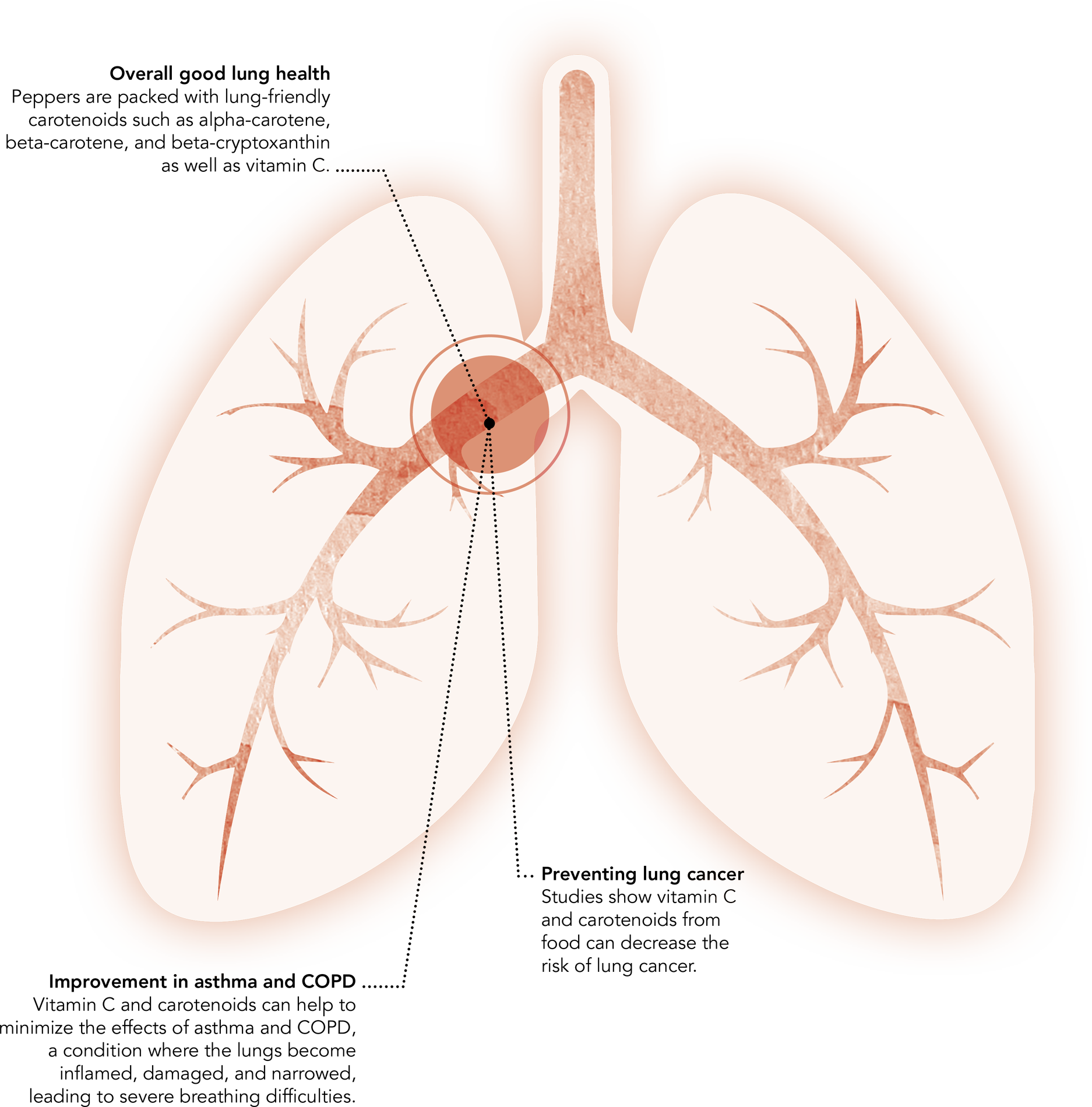-SUPERGROUP-
PEPPERS AND CHILLIES
Peppers boost our intake of health-promoting carotenoids and vitamin C, while chillies have been linked to weight loss and better heart health.
All peppers are packed with similar good amounts of vitamin C, but red peppers win for extra nutrients.
Red peppers
- contain good levels (double that of green peppers) of the antioxidant beta-carotene
- are rich in folate and vitamins A and E.
Green peppers
- are the best source of lutein and zeaxanthin, two carotenoids that are important for good eye health.
Yellow peppers
- are richer in vitamins B1 and B3, which help release energy from food.
Chillies
- contain capsaicin – a heart-friendly chemical that aids weight loss.
Have three to four peppers a week, and small amounts of chilli.
Choose fresh peppers or chillies that are firm, or buy good-quality jarred peppers, dried chillies, or chilli powder.
Keep in the fridge if fresh, and in a cupboard if dried.
Enjoy raw or cooked – adding a little fat will help absorb all the carotenoids.
Heart-friendly spice
Studies reveal that capsaicin, the compound present in the flesh and membranes of chillies, has many heart-friendly effects. One of these is that it blocks the action of a gene that makes the arteries constrict. This stops the vessels narrowing, allowing more blood to flow through them. It also helps to stop platelets clumping together, a process that’s involved in forming blood clots. In addition, capsaicin helps to reduce cholesterol.
Artery helpers
Peppers are also very good for the heart as they are rich in vitamin C and carotenoids. These nutrients act as powerful antioxidants, helping to mop up free radicals, which can damage cells and start the process that leads to atherosclerosis, or narrowing of the arteries.
Peppers are a great source of vitamin C – half a red pepper has a fifth more vitamin C than an orange.
Weight loss
Much research has focused on how capsaicin, the chemical compound in chillies that gives them their spiciness, can have a positive effect on weight loss. Studies show it may boost the number of calories we burn – one review found about 50 more calories were burnt in a day when capsaicin was included in the diet. Capsaicin also seems to temper appetite, so we eat less.
 74
74
fewer calories were eaten if chillies were consumed first.
Cancer protectors
A 2017 study found the risk of lung cancer was 26 per cent lower in adults with the highest intakes of vitamin C compared with the lowest; while for beta-carotene it was 34 per cent lower. Men who smoked heavily seemed to benefit most from the carotenoids; while women who smoked seemed to benefit most from vitamin C.
Respiratory system helpers
Peppers are loaded with vitamin C and carotenoids; see below how they benefit respiratory health. These nutrients are important for healthy lungs and are linked to an improvement in respiratory diseases such as asthma and chronic obstructive pulmonary disease (COPD). COPD is most common in smokers and, according to the World Health Organization, affects 65 million people around the world.









